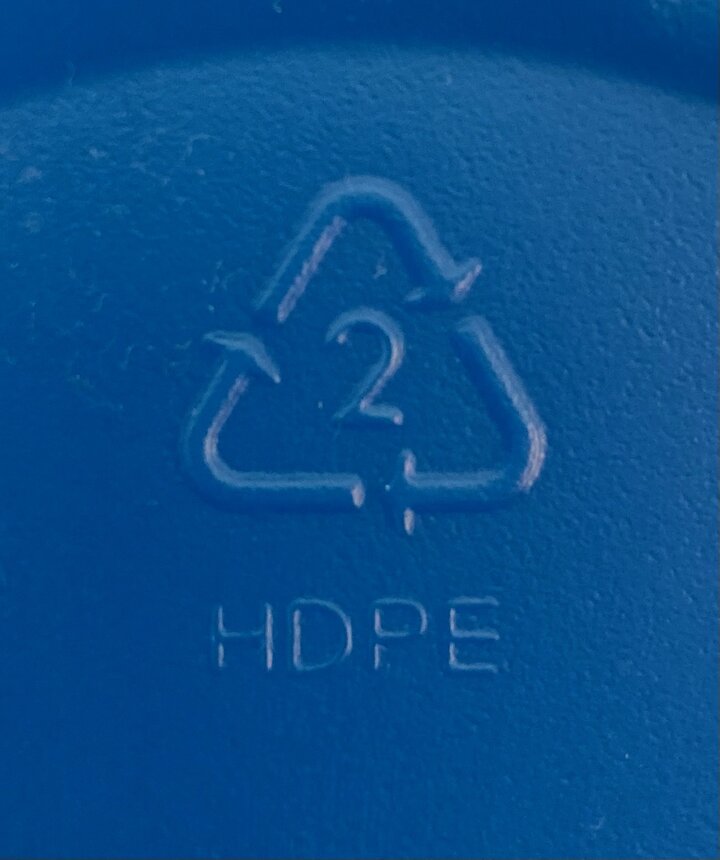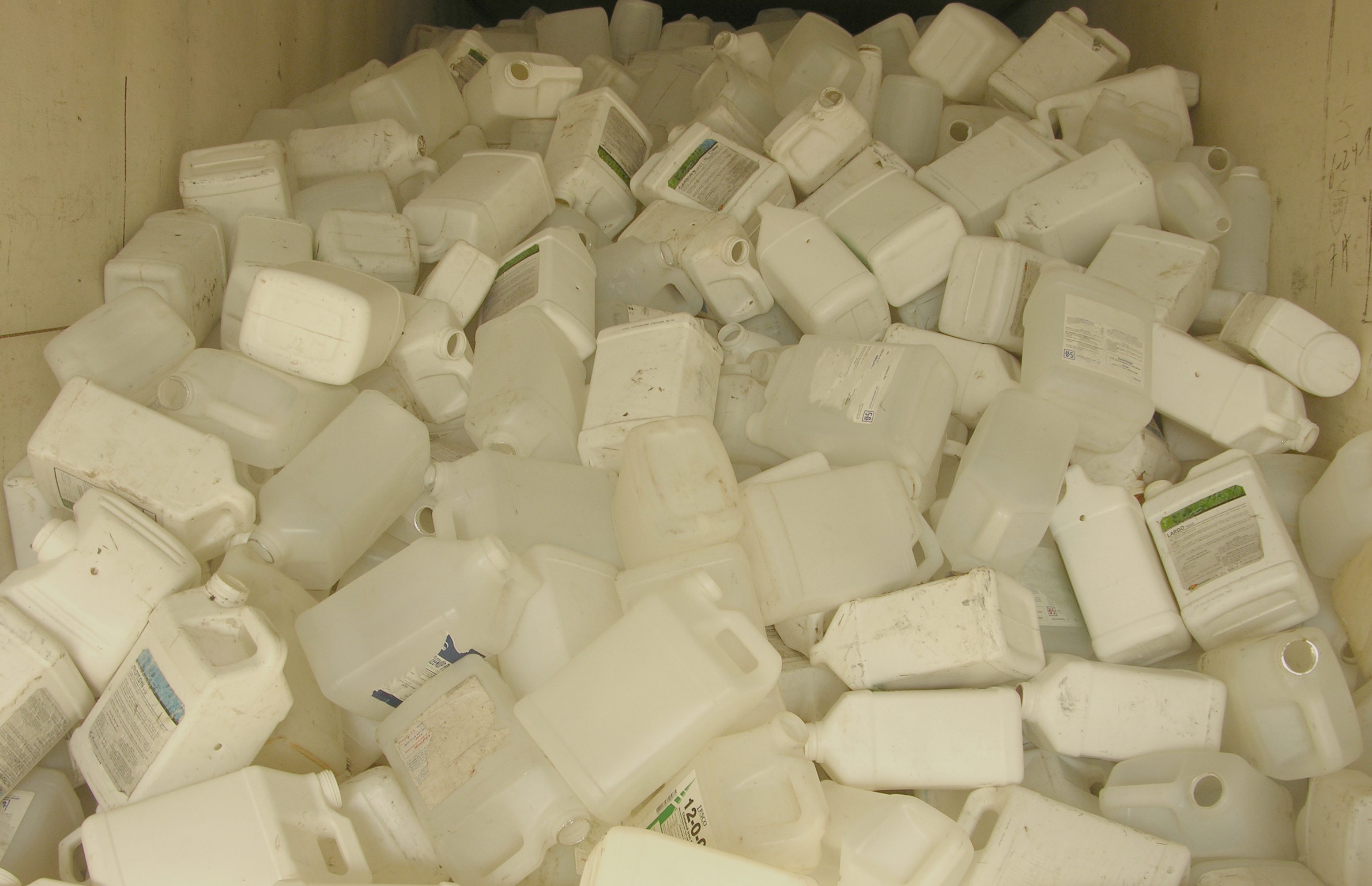2025 Container Recycling Sites
Check back as more sites are added to the list.
G. Phillips and Sons (GPS) will coordinate the collection and recycling of used crop protection containers in Nebraska. GPS has been contracted by the non-profit Ag Container Recycling Council (ACRC) to recycle the plastic containers in Nebraska. GPS will pick up these containers and process them at a service center.
Not sure what to do with empty intermediate bulk containers (IBCs)? Contact G. Phillips and Sons to learn how they can help.
Requirements for a Container/Drum to be Recycled
General requirements
The ACRC recycles plastic containers made from high-density polyethylene (HDPE) only. HDPE containers are marked with the plastic resin code #2.

Accepted
- Containers that held crop protection products, including pesticides, crop oils, adjuvants, fertilizers, micronutrients, and biologicals
- Crop protection chemical drums* (15, 30, and 55 gallons)
- Professional pesticide products (used by professional pest managers for structural pest control, animal health, lawn care, vegetation management, forestry, aquatic pest control, and public health pest control)
- Stained, but clean, containers/drums
*Not all collection sites accept drums. Please check the list linked at the top of this page for details.
Not Accepted
- Unrinsed containers/drums
- Crushed containers/drums
- Containers that held products (including pesticides) labeled for consumer use in households, lawns/gardens, and swimming pools
- Mini-bulk bins, intermediate bulk containers (IBCs), saddle tanks, and nurse tanks
- Containers/drums with external pesticide residue that can be rubbed off by a gloved hand
See more about acceptable containers from the ACRC, including a checklist for preparing them.
1.0- and 2.5-gallon container requirements
- Remove label booklets, plastic shrink-wrap labels, and caps; dispose of as solid waste. Be sure to rinse caps before disposing of them.
- A single layer of glued-on paper labels may remain on the container
- Bags of containers must be stored to avoid exposure to the elements
- Do not bale or crush containers
15-, 30-, and 55-gallon drum requirements
- Do not cut drums open
- Drums can be stored outdoors, but should be stacked on their sides to prevent rain from entering the bung holes
- Drums are collected at the end of the season
For Collection Site Operators
Collection Schedules
There are four collection-scheduling options in Nebraska. Each collection site decides which collection schedule they will use.
The four collection-scheduling options are:
- By appointment only
- Specific dates and times (one- or two-day events) during June, July, and August
- Use-season (May through August)
- Year round
GPS will coordinate with each state/ag organization and collection site to schedule pickups. Collection sites and applicators will be notified 48 hours before their scheduled date.
Typical Collection Process
A plastic tarp is spread on the ground. Upon arrival, the containers or drums are moved from the vehicle to the tarp. The inspection process takes place on the tarp. Accepted containers are placed into 4-mil, 275-gallon plastic bags*, and put into temporary storage. Rejected containers are set aside on the tarp until all the containers are inspected and then are placed back into the vehicle. Rejected containers remain the property of the vehicle's driver.
*GPS provides 4-mil, 275-gallon plastic bags for collecting containers smaller than 5 gallons. The bags hold about 40 2.5-gallon containers (approximately 30 pounds of plastic). Larger containers will be loaded loose.
Other Important Information
Tight control of inventory is required in this recycling activity. Inspections are fundamental to ensure that high-quality containers are accepted. This recycling program cannot sell plastic to the industry for recycling due to low demand and market value. Instead, the national coalition of pesticide manufacturers underwrites the expenses in many states to inspect the containers a second time before acceptance, then takes possession of the plastic, transports it, grinds it, and arranges for its recycling into the plastics industry.
A site's coordinator and contractor's agent will be responsible for inspecting and approving the condition of containers for pickup.
At least 1,000 pounds of containers must be collected before being picked up. If a site has collected fewer than 1,500 containers, GPS suggests consolidation with another collection site, or continued storage until the 1,000-pound threshold is met.
